Dave White’s Forgotten Soul (February 9, 2025) and Kiana Jimenez’s haunting poem, Damned Souls, converge in a meditation on longing, entrapment, and the relentless weight of time. Together, they capture the essence of love bound not by choice, but by memory and fate—an eternal tether that lingers even in absence.
The illustration presents a spectral face, pale blue with hollow eyes that glimmer like distant echoes. Suspended within chains and locks, the figure seems trapped in a liminal space—neither fully alive nor entirely gone. The swirling purple backdrop conveys the passage of time, jagged and restless, while scattered candles flicker like fragile remnants of devotion. A golden lock, untouched and rusting, becomes a symbol of love’s persistence: present, but unreachable.
The poem gives voice to this entrapment, weaving the rhythm of clocks and chains into the ache of memory:
“The flow of you runs through my veins,
Like ticking clocks with endless chains.
Each tick, each tock, pulls me apart,
A constant rhythm tied to my heart.”
Both the artwork and poem dwell in a liminal space—where love is eternal yet inaccessible, where memory binds as tightly as any chain. The candles, like the stars in the poem, stand as witnesses, their light fragile but unyielding in the darkness.
Yet within this entrapment lies defiance. The candles burn despite their inevitable fading; the poem breathes life into a love that refuses erasure. Even as time constricts, the soul clings to what remains, whispering secrets into the night and etching devotion into memory’s unrelenting tide.
Together, Forgotten Soul and Damned Souls are a requiem for eternal love—haunted, unbroken, and bound forever by the ticking of time.
The Hourglass Covenant
The Hourglass Covenant — A digital download pairing of Kiana Jimenez’s poem Damned Souls with Dave White’s illustration Forgotten Soul, exploring eternal love, memory, and the chains of time.
24 in stock

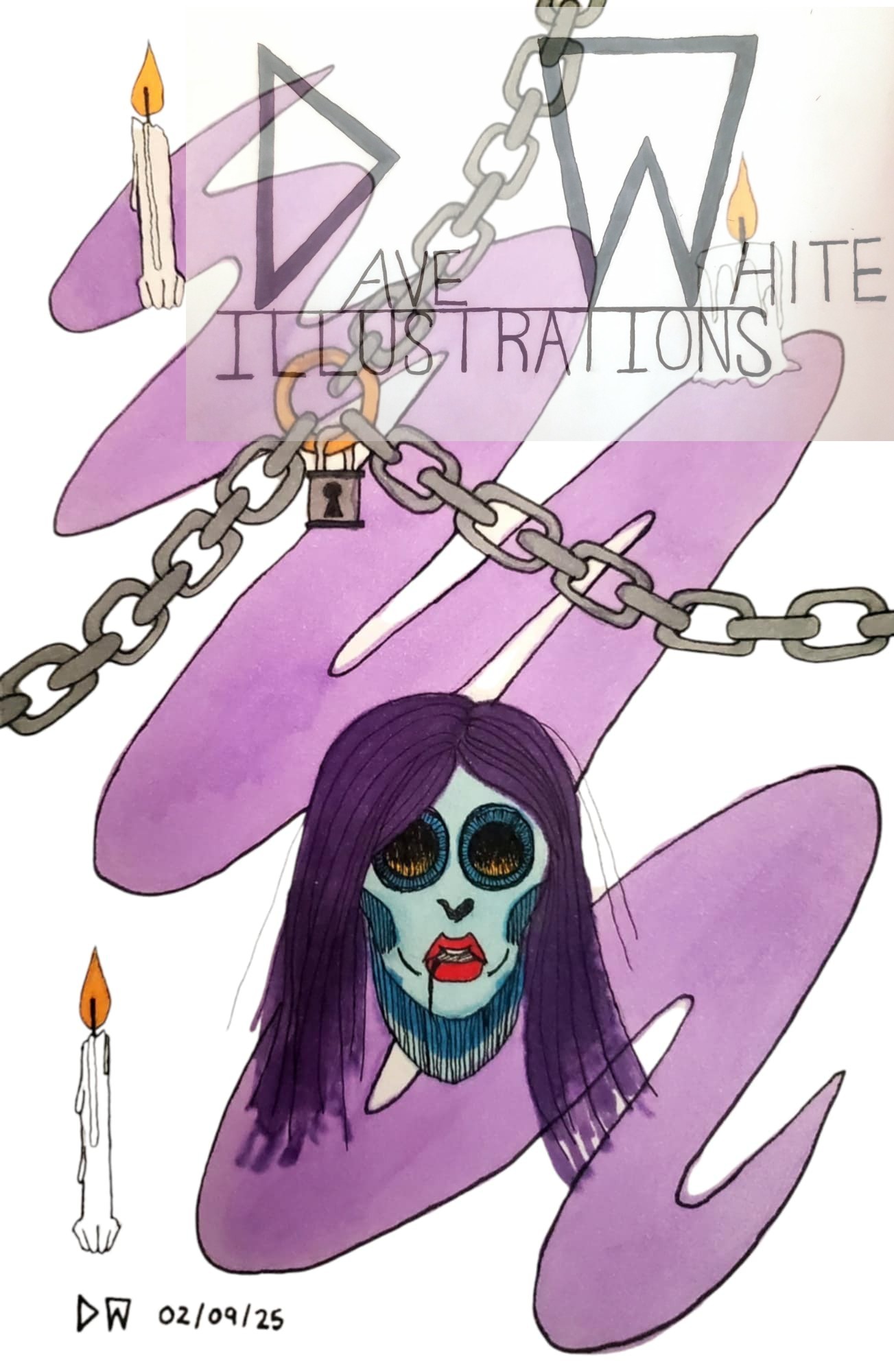
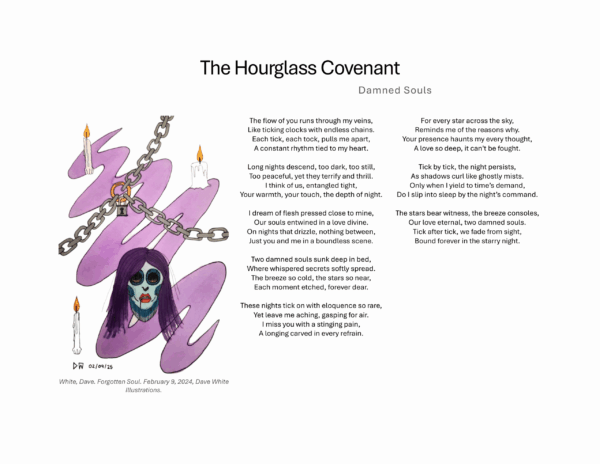
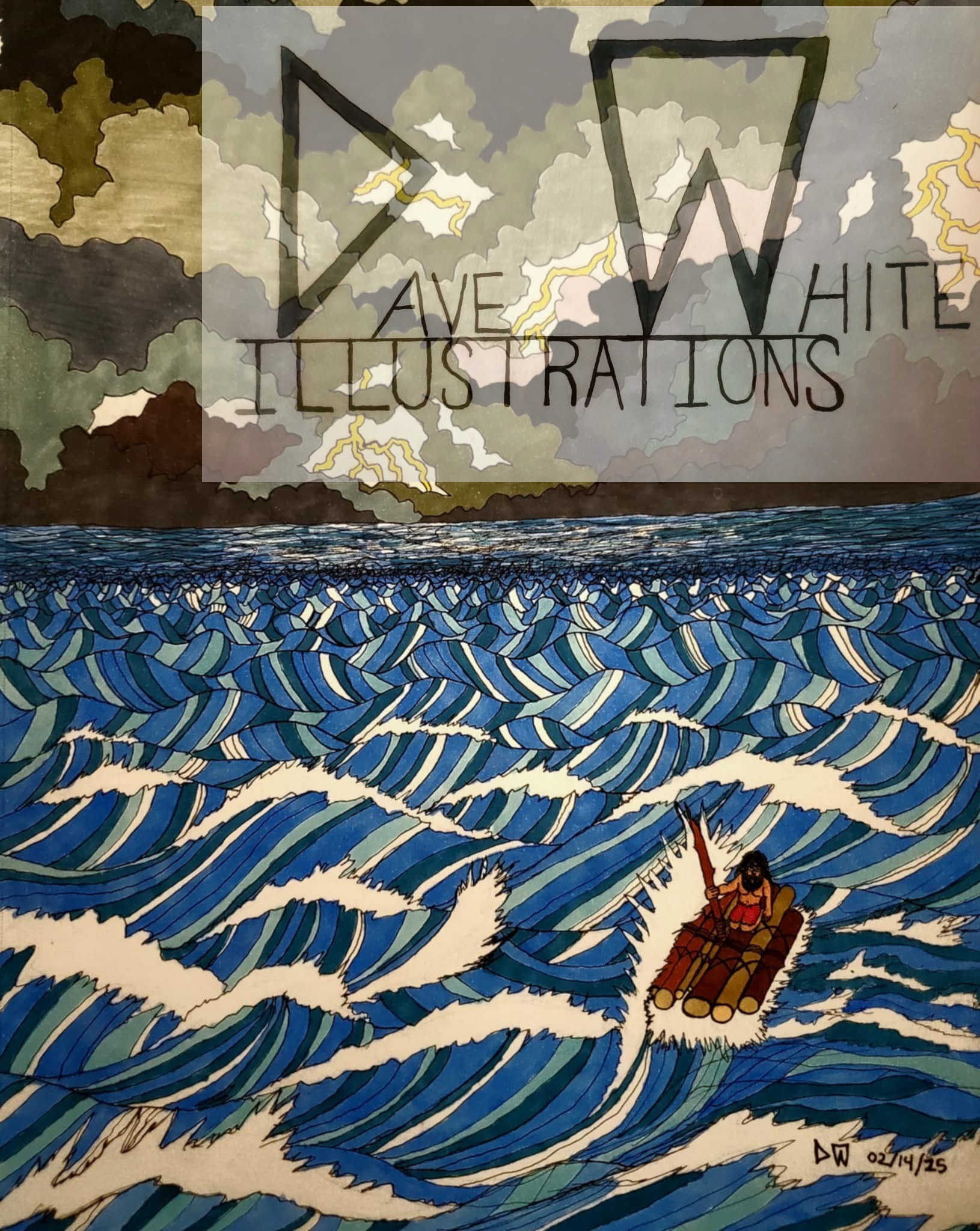
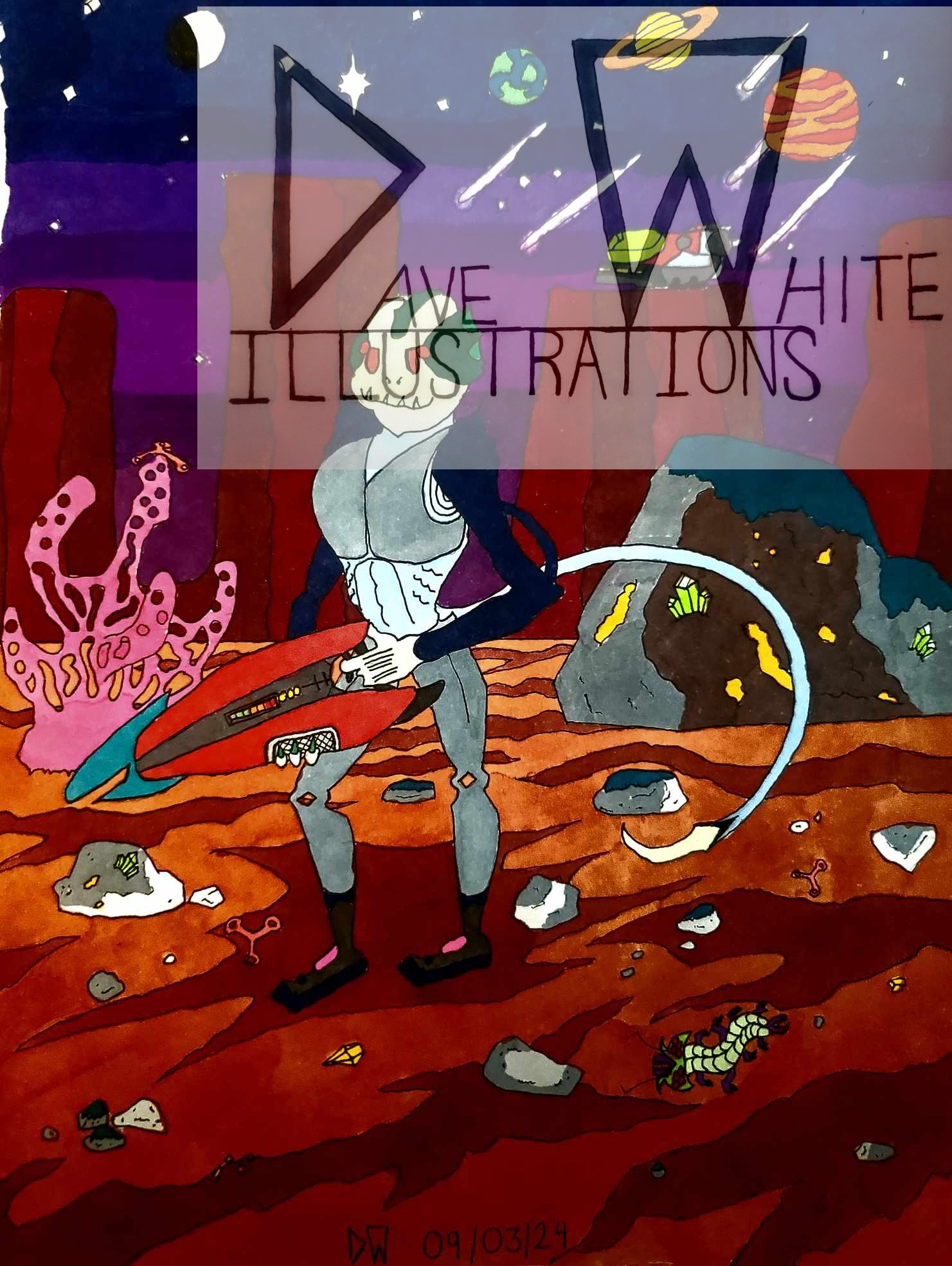
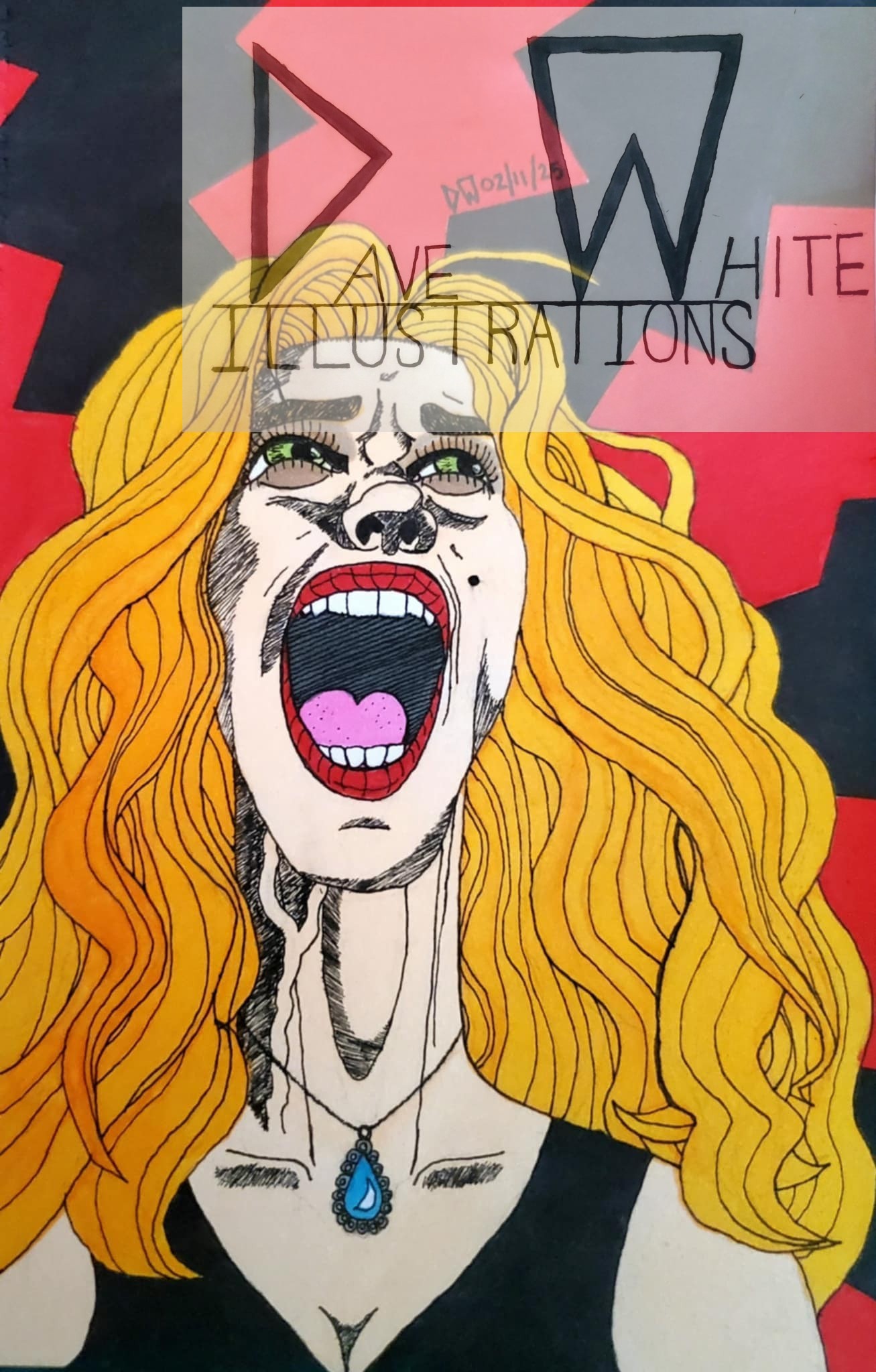
Leave a Reply